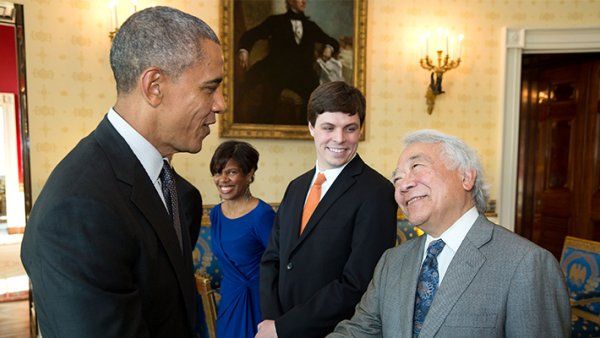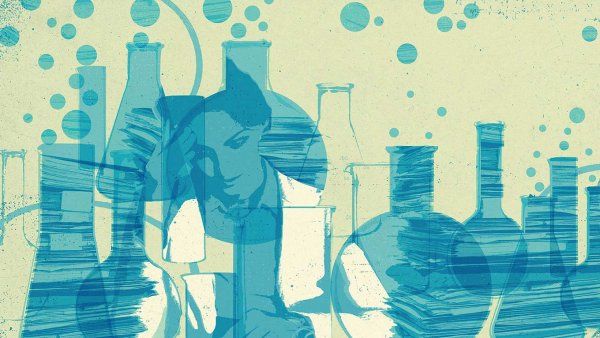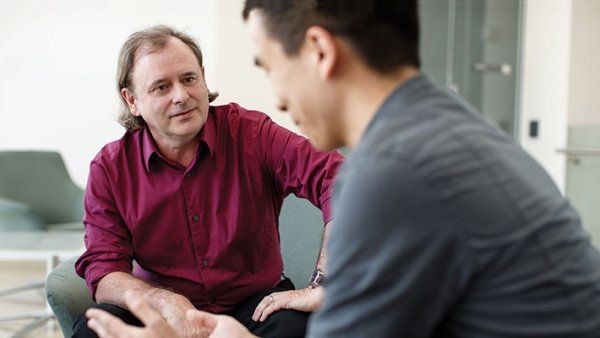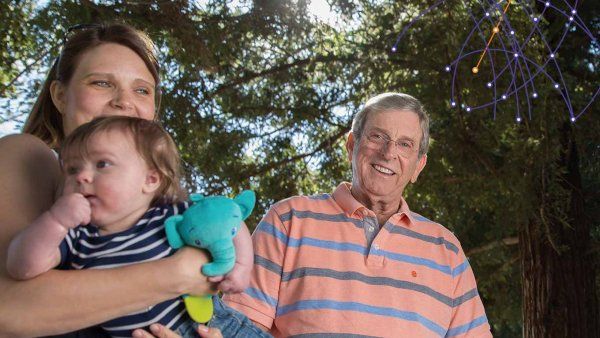University of California San Francisco
Give to UCSF-
-
Cryopreservation Helps Breast Cancer Patients Conceive After Treatment
-
Israeli Researchers Establish Novel Optogenetic Method For Cardiac Pacing And Resynchronization
-
Matthew Cooperberg Honored with AUA Gold Cystoscope Award
Matthew R. Cooperberg, MD, MPH, is the 2015 recipient of the American Urological Association (AUA) “Gold Cystoscope” award

-
Weight-Loss Surgery May Greatly Improve Incontinence
For severely obese people, bariatric surgery may have a benefit besides dramatic weight loss: it can also substantially reduce urinary incontinence.

-
Tens Of Thousands Of Californians Give Up Their Genetic Secrets
-
Current Monitoring of Pacemakers, Defibrillators May Underestimate Device Problems
The current monitoring of patients with cardiac implantable electronic devices (CIEDs) such as pacemakers and defibrillators may be underestimating device problems.

-
California's Obamacare Exchange To Collect Insurance Data On Patients
-
Steeped in Service
Luminaries light up UCSF’s legacy of service.

-
Tejal Desai Awarded Brown Engineering Alumni Medal
Tejal A. Desai, PhD, professor and chair of the Department of Bioengineering & Therapeutic Sciences, was awarded the 2015 Brown Engineering Alumni Medal (BEAM) from Brown University’s School of Engineering.

-
EXCEL Program Helps San Francisco Residents Chart a Better Life
The EXCEL (Excellence through Community Engagement and Learning) program is a partnership of UCSF, the City and County of San Francisco and the Jewish Vocational Services (JVS). It is a work-based learning program that uses both classroom and on-the-job training to prepare participants for career path job in the health care sector.

-
UCSF Medical Center, UCSF Benioff Children’s Hospitals Honored for Environmental Stewardship
UCSF Medical Center and UCSF Benioff Children’s Hospitals have been awarded an environmental achievement award from Practice Greenhealth, a leading health care nonprofit organization focused on positive environmental stewardship.

-
Lasers, Apps And VR: Cutting Edge Medical Tech On Display
-
Medical School Hopefuls Grapple With Overhauled Entrance Exam
-
Scientists Identify Progenitor Cells for Blood and Immune System
UC San Francisco scientists have identified characteristics of a family of daughter cells, called MPPs, which are the first to arise from stem cells within bone marrow that generate the entire blood system.

-
Cancer Blocked by Halving Levels of Protein Thought To Be ‘Untouchable’
A team of UC San Francisco and Stanford University scientists has discovered that a protein thought to be crucial for the body to develop and function correctly can be reduced by half in mice with no apparent ill effects.

-
Specific Roles of Adult Neural Stem Cells May Be Determined Before Birth
Adult neural stem cells, which are commonly thought of as having the ability to develop into many type of brain cells, are in reality pre-programmed before birth to make very specific types of neurons.

-
Local Man Sets Off Kidney Transplant Chain Reaction
-
Science Interrupted
These days, young investigators spend half their time applying for grants to keep their labs afloat. The competition is so fierce that the next generation of academic scientists is at risk and, by extension, so is science itself.

-
Conspiring Against Cancer
Alan Ashworth, PhD, one of the world’s preeminent cancer scientists and new president of UCSF’s cancer center, shares his vision for tackling the disease.

-
Unleashing the Immune System
Oncologists are treating the immune system instead of tumors to fight cancer – with startling results.

-
Tests to Gauge Genetic Risks for Prostate Cancer Now Are Feasible
Men with an elevated, genetically inherited risk for prostate cancer could be routinely identified with a simple blood or urine test, potentially paving the way to better or earlier diagnosis.

-
Entrepreneur Gives UCSF $4.5 Million To Combat Malaria
-
Fresno Unified Looks To Restore Sex Education
-
Sean Parker Supports UCSF to Advance Research on Mosquito Control for Malaria Elimination
Sean Parker, a Silicon Valley entrepreneur and philanthropist, has donated $4.5 million to UCSF to launch a research program on innovative and aggressive approaches against the mosquito that transmits malaria.

-
Better Birth Control Counseling Reduces Unintended Pregnancies Among Young Women
Training health care workers to educate young women about intrauterine devices and contraceptive implants dramatically cut the number of unintended pregnancies among young women seeking family planning services.

-
UCSF Alumni Travel Across the Globe for Award-Winning Reunion Weekend
This year, with the culmination of the yearlong 150th Anniversary celebration, it was all the more reason for 2,000-some UCSF alumni and friends from 34 states and six countries to return to their alma mater for their annual reunion.

-
Early Behavior Problems May Be Linked To ‘Aging’ Biomarkers In Preschoolers
-
Public Divided On Heart Benefits From Alcohol Consumption
UCSF researchers have found that people are divided on the cardiovascular benefits of alcohol consumption.

-
UCSF Study Finds Early Behavior Problems May Be Linked to ‘Aging’ Biomarkers in Preschoolers
Preschoolers with oppositional defiant behavior are more likely to have shorter telomeres, a hallmark of cellular aging, which in adults is associated with increased risk for chronic diseases and conditions like diabetes, obesity and cancer.
